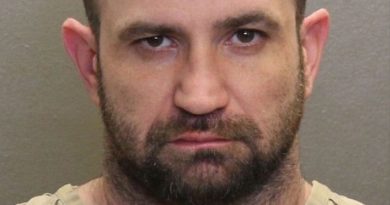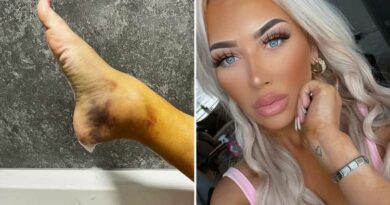Judge throws out claim by those harmed by pregnancy test drugs
High Court judge throws out damages case brought by 170 women and children who say pregnancy test drugs including Primodos caused miscarriages and birth defects
- Drugs, used for tests from 1950s until late 1970s, allegedly harmed children
- Today, Mrs Justice Yip ruled in favour of defendants and struck out all claims
Damages claims by more than 170 people who say they were affected by hormone pregnancy test drugs have been thrown out by a High Court judge.
The drugs, including Primodos, were given to women to test if they were pregnant from the 1950s until the late 1970s and are alleged to have been responsible for serious birth defects.
A group of 172 claimants, including children who say the drug gave them birth defects, brought legal action against Bayer Pharma, Schering Health Care, Aventis Pharma and the Government in a bid for compensation.
Lawyers for the drug companies and the Department for Health brought a bid to have the claims struck out at a hearing earlier this month, arguing the claimants have ‘no real prospect of success’ at a trial.
The defendants argued there is no evidence of a ‘causal association’ between the hormone pregnancy tests (HPTs) and the harm suffered by the claimants.
Pictured are claimants outside the High Court on May 2 who are among 170 claimants who lost the battle to win damages claims after they say they were affected by hormone pregnancy test drugs
An advert for Primodos, 1961: before this, pregnancy tests were slow and used live toads
READ MORE: I prayed, ‘Just let my baby see her first birthday’ – the children ‘affected by Primodos’
Today, Mrs Justice Yip ruled in favour of the defendants and struck out all the claims.
The judge said one of the claimants was barred from bringing legal action by a 1982 ruling of the then-Mr Justice Bingham in previous litigation over HPTs, while the others were not, but she had decided that none of the claims could continue.
She said in her ruling: ‘Although I have not treated the order of Bingham J as applying to the other claimants, the history of the previous litigation provides the context in which I have considered the defendants’ application to strike their claims out as an abuse of process.
‘This litigation is an attempt to relitigate the issues that were considered in the earlier litigation which failed because a causal association could not be established between HPTs and foetal harm.
‘Having carefully considered the material placed before me, I conclude that the position has not materially changed in the claimants’ favour.
‘It would be manifestly unfair to the defendants to require them to incur further substantial costs in defending this action.
‘Further, it is not in the interests of the claimants to maintain the litigation in circumstances where there is no viable plan to progress the claims and no real prospect of success.
‘I am driven to the conclusion that the proceedings are an abuse of process and that the only appropriate response is to strike out the claims.
‘It follows that the proceedings as a whole will be struck out.’
Lawyers for the claimants said in court documents for the earlier hearing that they regarded the evidence being relied on by the defendants as ‘unconvincing’.
The claimants – who previously vowed ‘to be heard’ – contended they had evidence, were gathering further evidence from experts, and that the process was ongoing.
Primodos first became available in the UK in 1959, with a user taking a pill on two consecutive days, and if women had a ‘withdrawal bleed’ a few days later this meant they were not pregnant.
It was withdrawn from the market in 1978 after concern that it may have been responsible for congenital malformations, miscarriages and stillbirth in some cases, the court was previously told.
Marie Lyon, 76, of the Association for Children Damaged by Hormone Pregnancy Tests, said women and children had already ‘died waiting for justice’. Her daughter Sarah was born with a partially formed arm, which she believes was the result of taking the pills.
Marie Lyon, 76, pictured, of the Association for Children Damaged by Hormone Pregnancy Tests
Marie Lyon pictured with her daughter Sarah in 1971
Speaking outside court earlier this month, she said: ‘We want acknowledgment and acceptance that they were able to prevent this from happening and that’s more important to us than anything – to stop it happening again.
‘The second reason we want it is to get rid of guilt. Every one of our mums, including me, feel guilt that we took the tablets, that we didn’t ask and we didn’t question.
‘As first-time mums, as many of us were, we never dreamed of questioning our GP. That guilt will never go away for all of us.
‘The third reason we need to be heard is redress. We’ve lost three of our children in their late 40s, early 50s, who have died from the effects and that was in the last three months.
‘We know that their health is deteriorating. We need to know that they have got security in the future.’
WHAT IS PRIMODOS?
Primodos is an oral hormonal pregnancy test that was prescribed to women in the UK between 1958 and 1978.
It was withdrawn amid fears the test was linked to cleft palates, limb defects and heart problems in babies.
Research suggests women who took Primodos were five times more likely to have a disabled child.
Primodos’ two key components, Norethisterone acetate and Ethinyl estradiol, are included in period delayers today, but at a much lower dose.
How did the test work?
Primodos worked by causing a rapid spike in progesterone levels, which resulted in a small menstrual-like bleed in non-expectant women.
Due to pregnant women producing higher amounts of progesterone to maintain their gestation periods, it was assumed these excess hormone levels would be balanced out in expectant mothers.
Primodos is thought to have caused infant disabilities due to foetuses’ livers not being sufficiently developed to process excess progesterone.
Complications swept under the carpet
In May 2017, Health Minister Lord O’Shaughnessy announced the Government had ordered medical chiefs to investigate the HPT scandal, saying: ‘It’s vital we take concerns such as these seriously. That’s why we’ve asked the Medicines and Healthcare products Regulatory Agency to conduct a thorough scientific review of the evidence.’
Professor Bill Inman, who established the Drug Research Safety unit, carried out research in 1975 demonstrating Primodos’ risks.
Yet these findings were only passed to the drug’s manufacturer, German pharmaceutical firm Schering, and not made public.
Investigations also reveal the potent hormone pills were never tested, even on animals, before being given to women.
Safety alarms were first raised in 1967, however, it was eight years before warnings were placed on packaging.
A damages claim was launched in 1982 but dropped over fears that victims would struggle to prove Primodos caused the malformations.
Campaigners fought for justice
A review concluded scientific evidence ‘does not support a causal association’ between the use of HPTs, such as Primodos, and birth defects or miscarriage.
Campaigners called the review by the Commission on Human Medicines a ‘whitewash’, saying the expert working group did not examine all of the available evidence on the use of the drugs.
Before Primodos was introduced, pregnancies were confirmed by sending samples from women to a laboratory where it was injected into a toad.
If the toad produced eggs in response to the high levels of hormones, it suggested the patient was expecting.
Today a High court judge threw out damage claims by more than 170 women who say they were affected by the tests.
Source: Read Full Article








